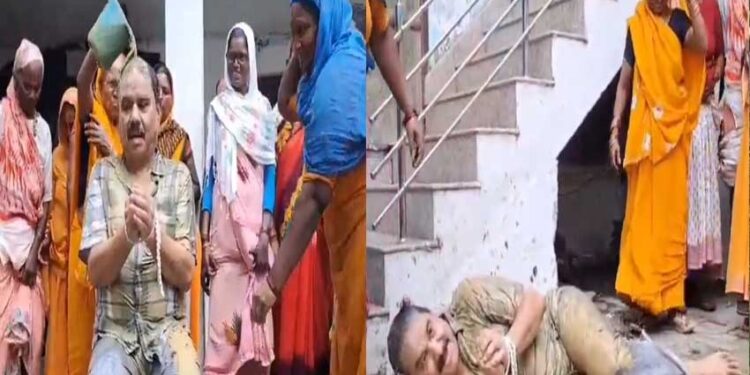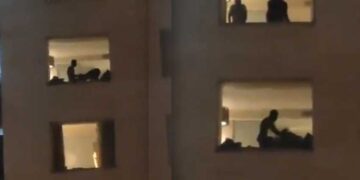Baba Harbhajan Singh (English: Baba Harbhajan Singh; Born- 3 August, 1941, Kapurthala, Punjab; Died- 11 September, 1968, Sikkim) is a soldier of the Indian Army, about whom it is believed that even after his death, he is still protecting the country’s borders. People now call this soldier by the name of ‘Captain Baba Harbhajan Singh’.
Harbhajan Singh died on 11 September 1968 after falling into a deep gorge at Nathula Pass near the Chinese border with Sikkim. People believe that since then this soldier has been guarding the borders as a ghost. Our country’s soldiers have full faith in this, and even the Chinese soldiers believe this because they have seen Captain Baba Harbhajan Singh patrolling the borders on horseback after his death.[1]
Harbhajan Singh was born on 3 August 1941 in a village named Brondal in Kapurthala district of Punjab. He received his primary education from the village school itself. In March 1955, he did his matriculation from ‘DAV High School’, Patti.
In June 1956, Harbhajan Singh joined Amritsar as a soldier and joined the Signal Corps. On June 30, 1965, he was granted a commission and posted in the ’14 Rajput Regiment’. He served his unit well during the Indo-Pakistani War of 1965. He was then transferred to the ’18 Rajput Regiment’.
In 1968, Captain Harbhajan Singh was serving with the ’23rd Punjab Regiment’ in East Sikkim. On 4 October 1968, while leading a mule convoy from Tukula to Dongchui in East Sikkim, he slipped and fell into a rivulet and died. Due to the strong flow of water, his body was carried away to a distance of 2 km from the spot. When the Indian Army started searching for Baba Harbhajan Singh, his body was found three days later.
It is believed that he came to his fellow soldier Pritam Singh in his dream and informed him about his death and told him where his body was lying. He also expressed his wish to Pritam Singh that his Samadhi should be built there. At first no one believed Pritam Singh, but when his body was found at the same place where he had told, the army officers believed him. The army officers built his Samadhi at a place called ‘Chhokya Chho’.[1]
After his death, Baba Harbhajan Singh used to give information about Chinese military activities around Nathula to his companions in their dreams, which always turned out to be true. Since then Baba Harbhajan Singh has been serving the Indian Army in his physical form and in view of this fact, he has been kept in the service of the Indian Army in his physical form after his death. Keeping in mind the convenience of the devotees, his Samadhi was again built 9 km down by the Indian Army in November, 1982. It is believed that the water bottle kept here acquires miraculous properties and by consuming it for 21 days, devotees get rid of their diseases. Also see: Baba Harbhajan Singh Memorial
In the last few years, Baba Harbhajan Singh has been promoted from Sepoy to Captain. Chinese soldiers have also confirmed that he used to patrol at night on his horse. The faith is such that whenever India-China military meeting takes place at Nathula, an empty chair is kept for him. For this faith and incorporeal service, the Indian Army considers him to be in service and grants him leave from 15 September to 15 November every year and with great reverence, the local people and soldiers bring his uniform, cap, shoes and his salary for the whole year, along with two soldiers, in a procession from Nathula to New Jalpaiguri railway station in a military vehicle. From there, he is brought to Jalandhar (Punjab) by Dibrugarh-Amritsar Express. From here, the army vehicle drops him to his house in the village. There everything is handed over to his mother. Then, with the same faith and respect, he is brought to Samadhi Sthal, Nathula by the same train.[2]
Some people considered this event to be promoting superstition, so they approached the court; because any kind of superstition is prohibited in the army. Therefore, the army stopped sending Baba Harbhajan Singh on leave. Now Baba remains on duty all 12 months of the year. Baba also has a room in the temple, which is cleaned every day and the bed is laid. Baba’s army uniform and shoes are kept there. It is said that despite cleaning every day, mud is found in his shoes and creases are found on the bedsheet.[3]









